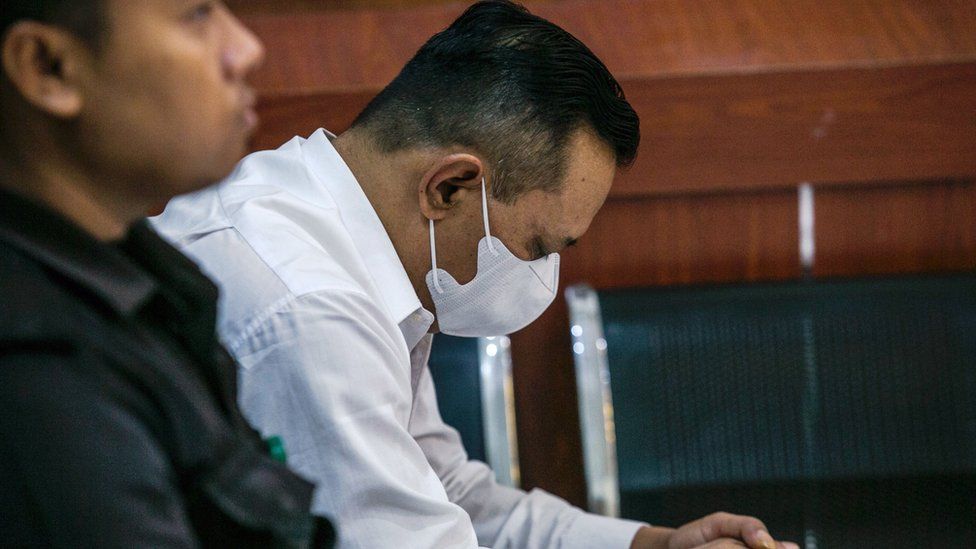Two football club officials have been jailed over the Indonesia stadium crush last October which killed 135 people.
The Kanjuruhan stadium crush in Malang, East Java occurred after police fired tear gas at fans who invaded the pitch and others who were in the stands.
It is the second deadliest football disaster in history.
On Thursday, an Indonesian court found organisers from the home club Arema FC guilty of criminal negligence causing death.
Abdul Haris, the chairman of the home club’s organising committee, was sentenced to 18 months in prison.
The club’s security officer Suko Sutrisno, was sentenced to one year in prison.
The judge said the club officials had failed to put in place adequate safety measures.
The convictions are Indonesia’s first rulings on the tragedy – in which more than 600 people were injured.
Three police officers are also on trial- accused of instructing their subordinates to fire tear gas at supporters in the stadium stands and on the field.
Following Thursday’s verdicts, victims’ families expressed disappointment over what they said were lenient punishments. Prosecutors had pushed for six-year sentences.
“The sentence doesn’t match reality. This is about the killing of 135 lives,” said Devie Athok, who lost his two daughters and ex-wife.

Dozens of children were among those killed that night when fans were caught in a deadly crush as they attempted to leave the stadium.
An independent probe last year found the crush had been triggered by police firing tear gas into the stands – a crowd control measure banned by Fifa.
Many families and young people had been in attendance at the game between Arema FC and its arch rival Persebaya Surabaya.
The two East Java clubs had a long history of violence between fans – so organisers had already instated restrictions that evening including extra police and restricting ticket sales to home side supporters.
But the judge said organisers had also sold thousands of tickets over stadium capacity and ignored blocked exits. He said the security officer also didn’t have a clear understanding of his duties.
A verdict date for the trial of the accused police officers has not yet been set by the Indonesian courts.
The trials have been criticised by civil activists and rights groups for being held in a closed court – with victims families saying the proceedings lack transparency.
Since the trial’s start in January, there have been regular protests outside the Kanjuruhan stadium and Arema FC’s headquarters.
The Kanjuruhan disaster has been a major source of national grief in Indonesia. It is the second-deadliest football disaster in history, after the 1964 stampede in Lima, Peru where 328 people died.
A report last year by Indonesia’s human rights body, Komnas HAM, ruled that the tragic incident had been sparked by police’s tear gas.
The report also noted other factors, including the stadium’s over-capacity and a push by league officials to hold the game at night to secure higher television ratings.
Indonesia’s government has said it is working with Fifa on a safety review of the country’s stadiums – however critics say little progress has been made so far.